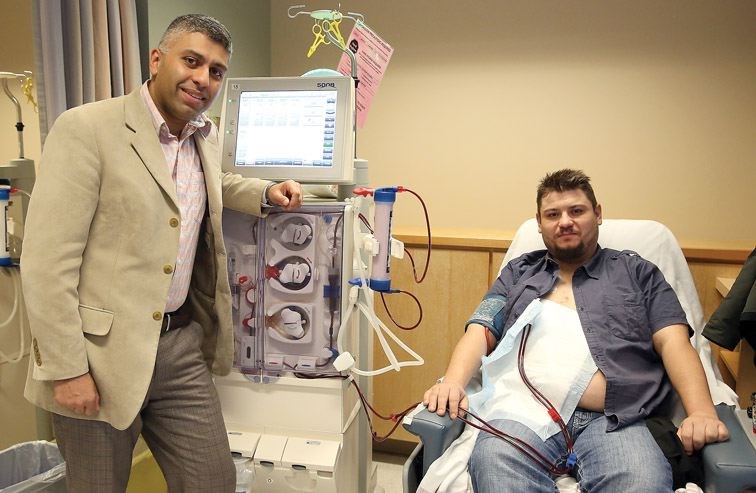The numbers are clear - the north is behind when it comes to organ donation after death - but BC Transplant and a Prince George physician are working to turn that reality around.
"Organ donation at least up here in the north is somewhat in its infancy so there is some education that is still required," said Dr. Fareen Din, the north's medical director for organ donation and medical director for the Intensive Care Unit in Prince George.
"We're still trying to lay out the road map for a plan as to how we capture those patients or individuals who may be organ donors."
Din started working with BC Transplant as its "physician champion" a couple of years ago to address the disparity.
Last year there were 95 deceased organ donors province-wide, tripling B.C.'s 2009 numbers. Each of the last two years, there has been only one organ donor from the north.
Resources, geography and need for education on organ donation among physicians and the public have all been factors in this region's flatlining numbers, he said.
"If you're on the coast, you've got two hospitals where people are going to generally die but in the north health care services are so spread far in between that organ donation doesn't quite cross the mind of many physicians."
BC Transplant came to Prince George in the fall for some training and already Din has seen a difference. In the last month the hospital identified a donor - meaning 2016 has already matched 2015's contribution.
Din is hopeful that will continue.
"I think as you have more identified donors and more physicians that refer them - by reasoning, we should be able to identify more organ donors in the north."
Northern Health is the only health authority that doesn't have a neuroservices department but Din said northern hospitals can still get expert opinion.
Din said the ultimate difference will come through education of health care professionals and the general population.
"I would not say that there are missed opportunities because of the lack of neurosurgical service or the lack of having a local retrieval team," said Din, in reference to the Vancouver team that is brought up whenever there is an organ donor.
The team can and has been flown up in a matter of hours.
"We try to get the ball moving pretty fast so it could be a matter of hours," said Din, adding the window for retrieval varies. "Different organs have different rough cutoff periods.
"The longer the time, the less organs potentially you can receive," said Din, who doesn't see the tight time frame as a barrier in the north.
"If there are missed opportunities it's because of general population education," said Din, noting Transplant BC takes the lead there through its Service BC pilot program, launched last year, to sign up donors with drivers licences.
"And (missed opportunities) within the healthcare system itself - not only in Prince George but outside - physicians identifying potential organs if they have a catastrophic illness."
His role is helping better train healthcare professionals on what to look for.
That education covers a number of areas, chief among them with the intensive care staff.
"That's where most, if not all of the work is done," Din said adding that includes the emergency department and "working with the operating room because when we retrieve organs it has to be an OR facility."
Blaine Fleury has been on the transplant waitlist for a kidney for the last two years.
He's one of more than 500 British Columbians waiting for organ donation.
Most need a new kidney, with a median waiting time of five years, Din said.
Of 422 patients, last year B.C. did 271 kidney transplants, 161 from deceased donors.
Fleury, 29, was diagnosed with chronic kidney disease when he was 18, but it's been slowly progressing and ultimately led to dialysis treatment.
Fleury visits the kidney clinic at UHNBC three times a week for the four-hour sessions.
"You make the best of it," Fleury said.
"Physically it takes its toll at times."
"Mentally it is challenging at times, when you don't have a support system like myself. All my family is pretty much spread out across Canada," said Fleury who moved to Prince George from Saskatchewan in 2011.
"I get out in nature a lot, sit and reminisce and think, and try to find balance."
Fleury is O negative, a rare blood type.
"Getting a transplant for myself is like winning the lottery. One in a million chance, I guess."
You have to have patience and be ready for anything when you're on a waitlist, Fleury said.
"It's difficult because you're not sure what's going to happen from one day from to the next."
B.C. produced 113 living donors last year, but it can be hard to broach the subject with family and friends. Fleury said it's a personal decision, but he hopes to see more people register as organ donors.
"It'd be great because if they can't save my life, it might be somebody else's."
Register to be an organ donor at transplant.bc.ca.



